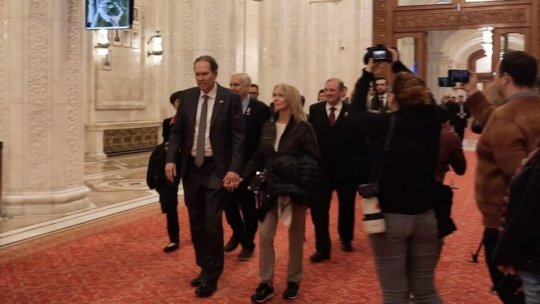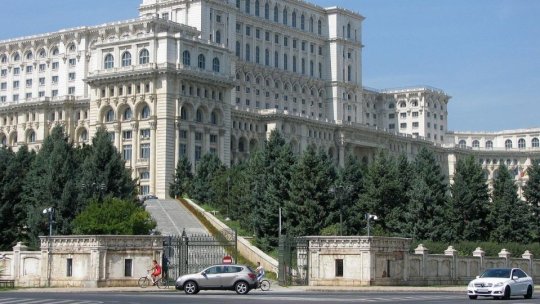Financial Press Review, 6 May
Articles from the dailies Ziarul Financiar, Curierul Naţional and Bursa.

Articol de Dinu Dragomirescu, 06 Mai 2011, 18:34
High inflation, low European fund absorption rate and workers shortage are just some of the topics of today’s financial press review.
All the financial dailies open with the statement that the NBR Governor made yesterday after presenting the quarterly report on inflation.
‘Who gave us a hidden tax?’ the Curierul Naţional reads, referring to a comparison made by a Nobel Prize laureate for economy that Mugur Isărescu had previously used.
‘The National Bank is still afraid of inflation, which has risen above estimations because of the food and fuel price increase’, the Ziarul Financiar reads.
The annualized inflation rate exceeded 8 percent in March.
‘An extreme appreciation of the RON is not sustainable’, the Bursa reads on the same topic.
‘We want inflation to fall sustainably instead of discouraging the sectors that are still doing all right, such as industrial output and exports. We don’t want to cause any long-term imbalances’, the Curierul Naţional quotes the NBR Governor.
The Bursa prints an article by Cornel Codiţă on the ‘distortions of the internal market’ which are causing produce prices to increase. The author believes that it is abnormal that ‘in a country with infield, grazing land, water sources, acceptable infrastructure and other factors that encourage agriculture, most of the produce people consume is imported’.
‘I do not agree that we should freeze prices even in extraordinary circumstances, because history has shown it to us that this offers a short-term comfort, while the bills are bigger after we unfreeze them’, the Ziarul Financiar quotes Mugur Isărescu, as a reaction to a debate sparked by PM Emil Boc.
Under the headline ‘At this rate, Romania will only spend 38 percent of the 20 billion Euro for structural funds’, the Ziarul Financiar prints the conclusions of an analysis conducted by a consultancy company. The results indicate that our infrastructure and transport projects are our weakest points; we will only manage to absorb all the money in 2024, while all payments end in 2015.
‘We need action, otherwise the money is lost’, the daily quotes presidential consultant Leonard Orban.
The Ziarul Financiar makes a ‘report on the first two years of the First House Programme: one loan out of 80 was for a new house. Has the programme reached its purpose?’ the daily wonders.
‘The programme was initiated two years ago by the Government in order to resuscitate constructions and the economy, but has since turned into a social programme that has supported banks, prevented prices from rising and enabled 40 000 Romanians to buy houses with low advance payments, but with interests that even multinational companies can get for their employees.
‘The fourth programme is likely to be the last’, the daily reads.
A Bursa headline reads ‘Brokers and journalists have made welders and wood turners scarce’.
Some sectors have too much qualified personnel, while others have too little.
‘We should establish our job mobility action plan’, Cristian Pârvan, Secretary General of the Businessmen’s Association of Romania says.
The Curierul Naţional comments on a statement that the president of the National Council of Small and Medium Sized Private Enterprises in Romania made about the law that regulates occasional activities: ‘The document is very good’ because it sets the premises for less people working on the black market.
‘The trouble with the law is that most daily workers are employed by natural persons, and not legal personalities, which the law refers to.
Natural persons also have to be considered in this law.
In other countries this category is regulated. If we do not change it, the law will encourage the gray economy’, Ovidiu Nicolescu stated.
Translated by: Gabriela Lungu
MA Student, MTTLC, Bucharest University









